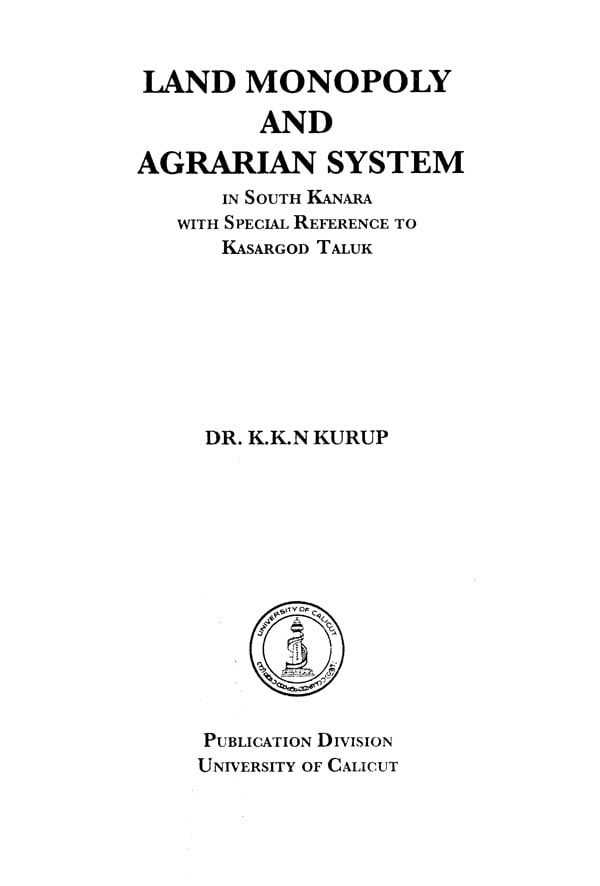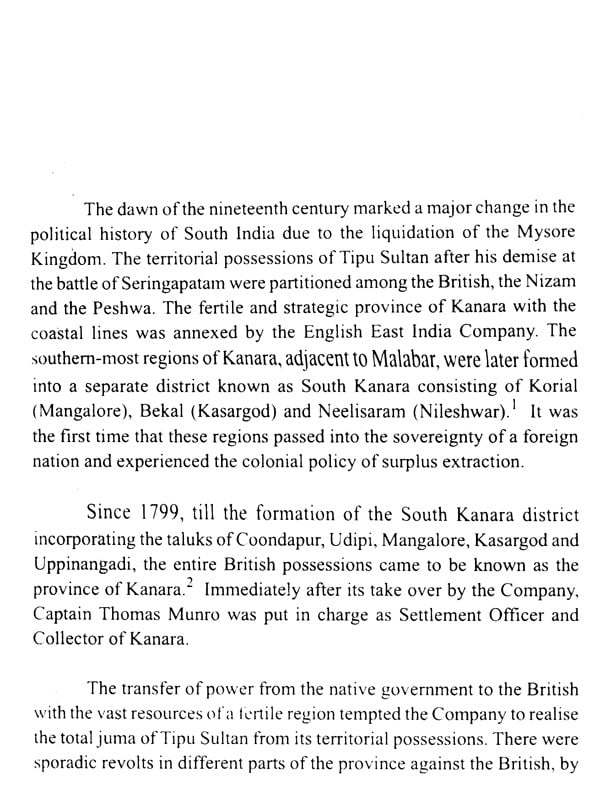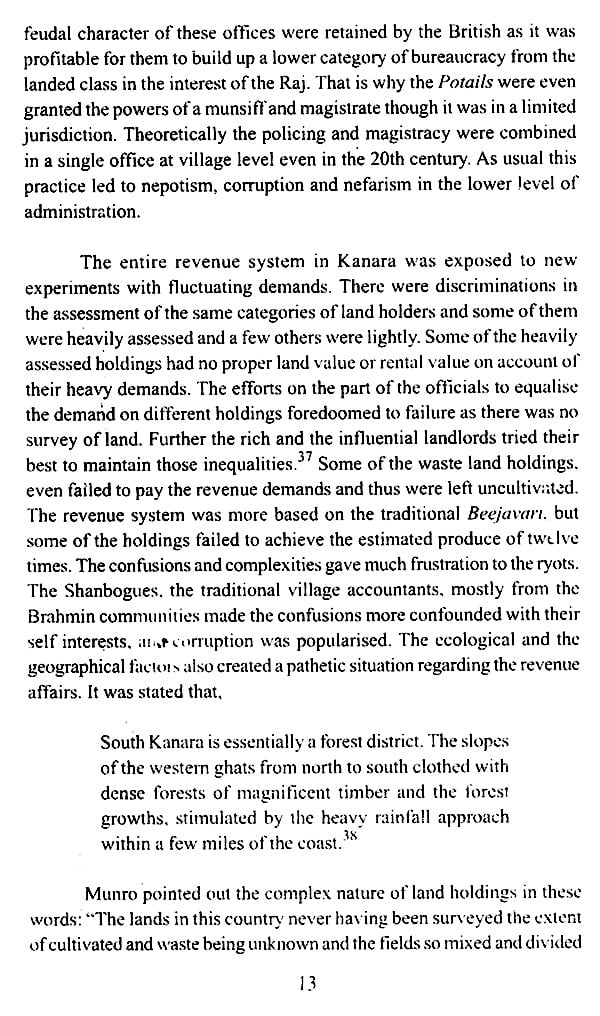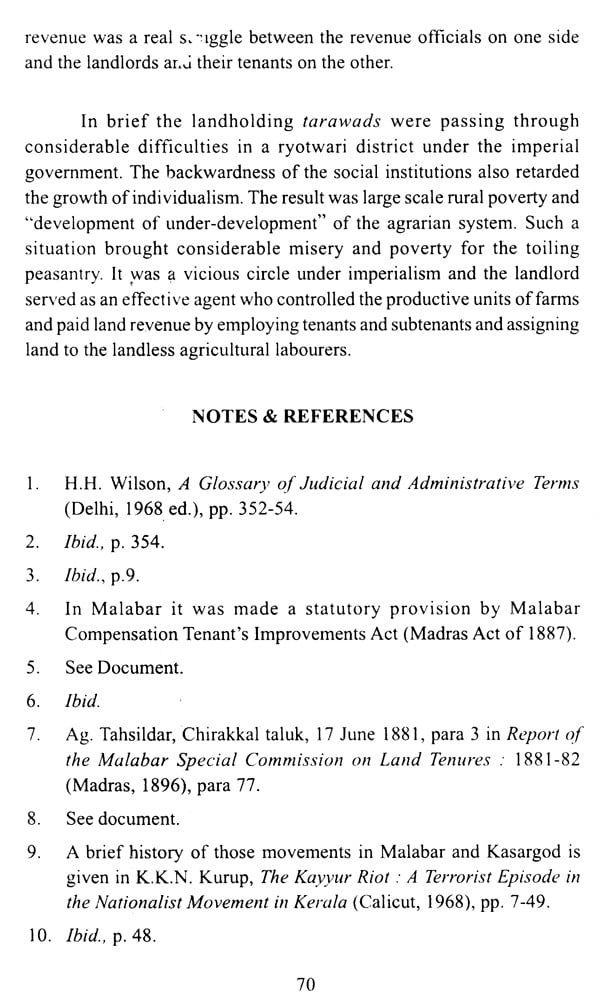
Land Monopoly and Agrain System- In South Kanara with Special Reference to Kasargod Taluk
Book Specification
| Item Code: | UAV008 |
| Author: | K.K.N. Kurup |
| Publisher: | University of Calicut |
| Language: | English |
| Edition: | 2000 |
| ISBN: | 8177480065 |
| Pages: | 78 |
| Cover: | PAPERBACK |
| Other Details | 8.50 X 5.50 inch |
| Weight | 120 gm |
Book Description
When a research programme was pursued in this direction, it had its own limitations and difficulties. The early revenue records and several administrative reports of the region, left by several commissions and district collectors for a period over six decades had incorporated the entire district of Kanara as an administrative unit. Following the foot prints of Thomas Munro, the Commissioner of Kanara, the statistics and other revenue details were given for the whole district. The district manual by Sturrock is a good example for this. Therefore a study pertaining to a taluk had its glaring shortcomings, which were seriously experienced in the present work also. With all such limitations this is an earnest effort to highlight the British policy in the promotion of a land monopoly system with proper juridical backing and support by the state. In fact the revenue policy followed by the colonial state had been highly responsible for the economic drain and backwardness of the region.
**Contents and Sample Pages**










